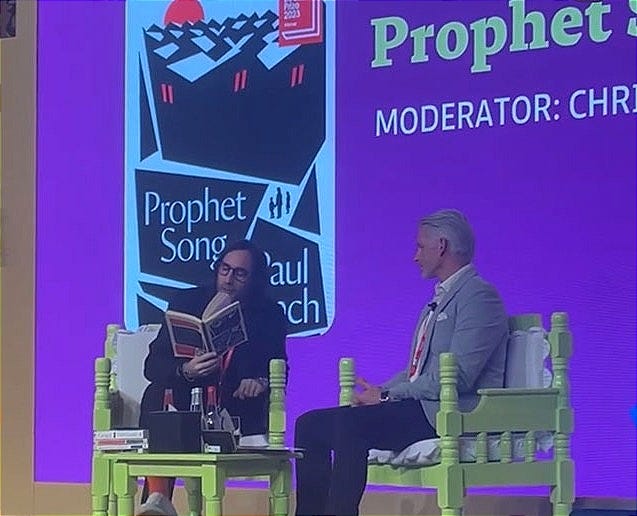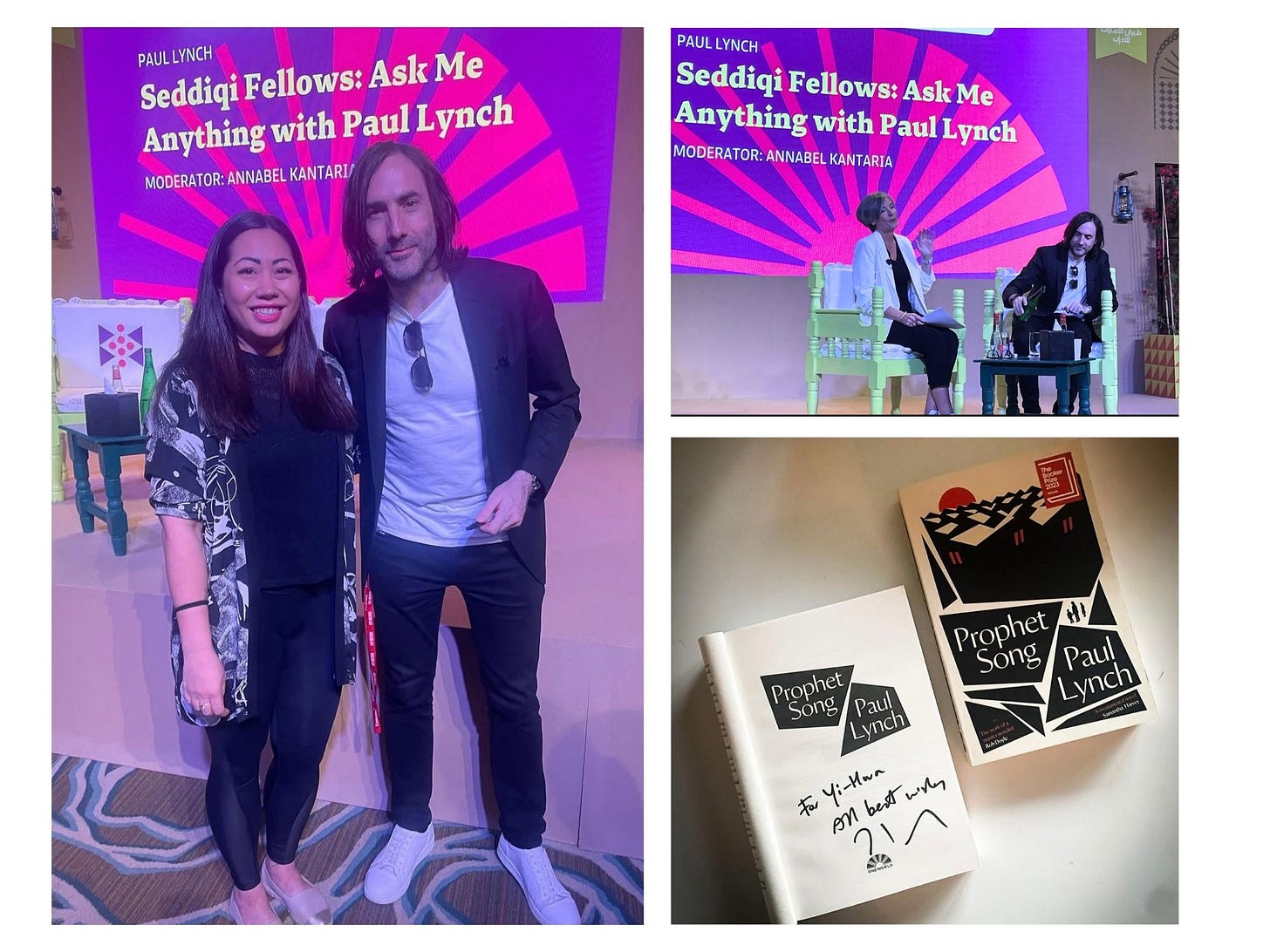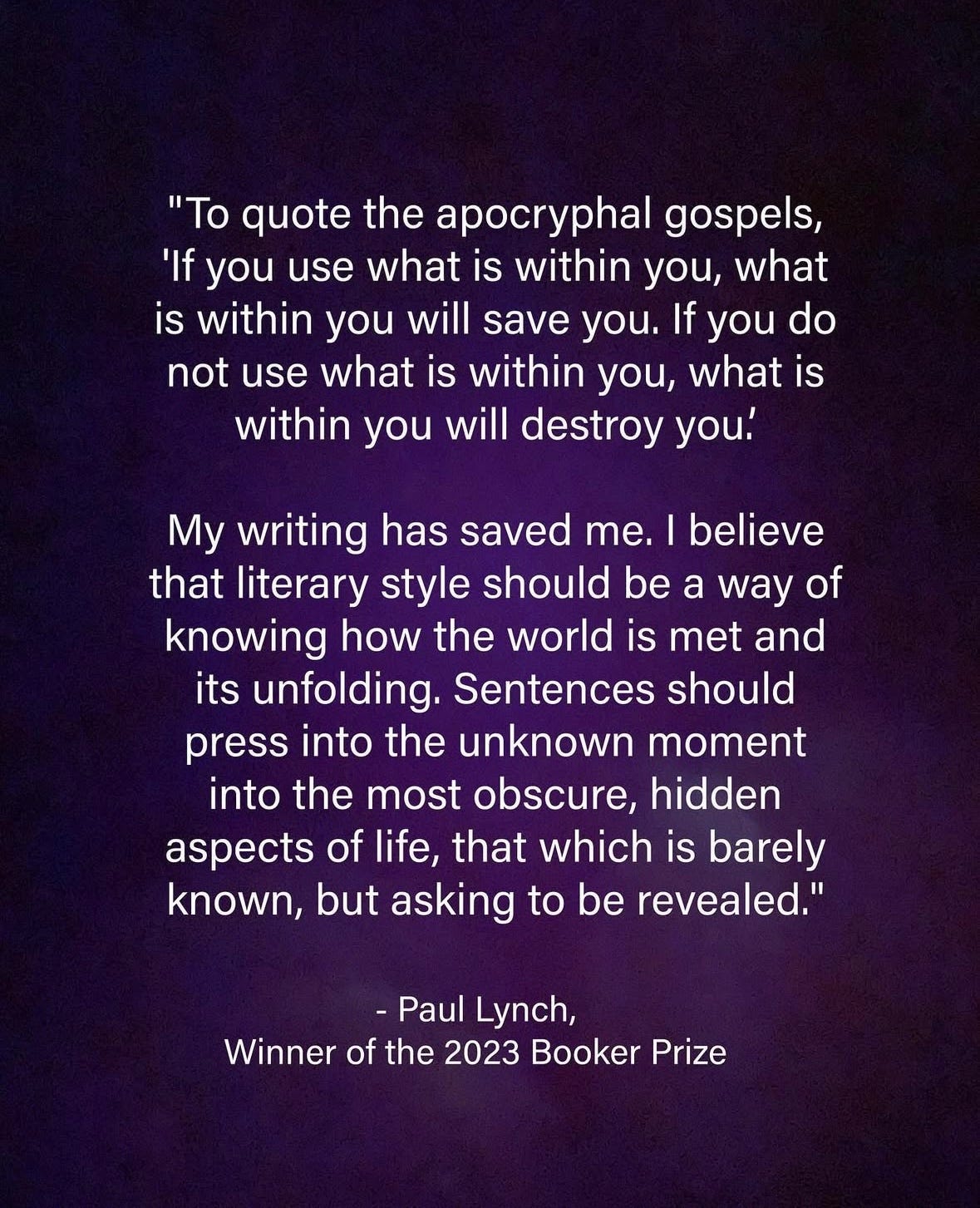Lessons on writing - and life - from 2023 Booker Prize winner Paul Lynch
#1: Truly great writing is the work of the soul
The Booker Prize is one of the biggest book prizes in the world. To many people, it’s considered the biggest, or at least the most prestigious. Each year, it awards “what is, in the opinion of the judges, the best sustained work of fiction written in English and published in the UK and Ireland. It is a prize that transforms the winner’s career.” As per the official website: “The winner receives £50,000 as well as the £2,500 awarded to each of the six shortlisted authors. Both the winner and the shortlisted authors are guaranteed a global readership and can expect a dramatic increase in book sales.”
It was first launched in 2005 as the Man Booker International Prize, as a biennal prize for a body of work with no stipulation other than the fact that it must be written in English. By 2015, the rules expanded to allow writers of any nationality to enter. For the International Booker Prize, entries can include novels that have been translated into the English language. Now, each year, one book is named The Booker Prize winner (for those originally written in English and published in the UK and Ireland), and another the winner of The International Booker Prize (for those originally written in another language and translated into English, and published in the UK or Ireland). The longlist for the former will be announced in July this year, while the longlist for the latter (the international one) was recently announced.
In 2023, the book that won first place was Prophet Song by Paul Lynch. It’s a dystopian novel - the author’s fifth book, but his first dystopian tale - and follows the Stack family as they try to navigate life through an alternate-reality version of Ireland that takes place in the present day, at the hands of an increasingly totalitarian government. The protagonist is Eilish Stack, a mother of four who is determined to do whatever it takes to save her family amidst the crumbling system of the Republic of Ireland. Her husband is arrested, and she has to decide whether or not they should flee - and if they do, then when and how, and at what cost.

It’s a gritty tale, to say the least. This feeling of intensity is actually helped along by Lynch’s penchant for not using conventional paragraph breaks. Like Eilish’s life (and the life of anyone who has ever faced some type of crushing struggle that feels cruelly relentless), the story just comes at you with no real pause, and in this case, it really adds to the desired effect. It really manages to capture the reality of a situation like this, even when the situation described is entirely fictional.
In his talk that was open to members of the public - moderated by Chris Bradley - Lynch explained that this book was one very much led by the stories in his subconscious mind. He said that it just came pouring out of him, almost like the story wasn’t coming from him but through him. He described how he was inspired by the idea of people sitting around their dining tables after a normal day of work or family life or whatever it may be, and then tuning into the news about horrendous thing happening elsewhere in the world - and feeling the emotional impact of that. People whose lives are upended in an instant, becoming refugees as their lives turn inside out. He said it was wondering what their stories are that fed into the emotions behind this book.

As an ELF Seddiqi First Chapter Writing Fellow, I was extremely privileged to have the chance to meet Paul at the 2024 edition of the Emirates Airline Festival of Literature, where he was one of the speakers for the year. I attended his public session on his award-winning book, and I was also lucky to be invited to a private session held just for the First Chapter Seddiqi Fellows.
A literary rockstar in every sense, it’s not just his writing, intelligence, or public speaking skills that make him brilliant - it’s also the way his mind works, the way views the world in such a deeply reflective way, and the way he inspires others to do the same. We could have listened to him talk all day!
Some of my favorite nuggets of wisdom that he shared with us that day:
Take ownership of your writing. Know what you want to say, allow yourself to feel what you need to feel, and let that come through.
Great writing is soulful. Work with your higher self to let the stories come through you. Meditate regularly, tap into your subconscious, then set this free through your words.
Don’t write to trends. Write a story that you are so passionate about that you never give up on it.
Becoming an author requires resilience above all. There will be ups and downs, and you just have to keep on going.
Ask yourself questions. That’s one of the reasons why we write: to explore them. Framing a question well, so that it can inspire further contemplation and perhaps expand the perspectives of those who also begin to ask those questions, is more important than providing a solution.

In the session, the wonderful Annabel Kantaria - an author and the mentor-in-residence of the ELF Seddiqi Fellowship, who moderated this session - asked him what led him to become a fiction author. He said he realized that there’s nothing else he truly wants to or can do in this life except this - and that if he didn’t do it, something inside of him would die.
I resonated with this so deeply that I felt it in my bones, and it was in that moment that I realized why I love this festival so much every year: for opportunities to hear from people like this, who feel the same way so many of us aspiring authors do, and are propelled towards a life of storytelling int he same way. It feels like coming home.
If you haven’t read his book yet, do it. Grab tissues - it’s a harrowing read. And in this case, that’s what makes it great.





